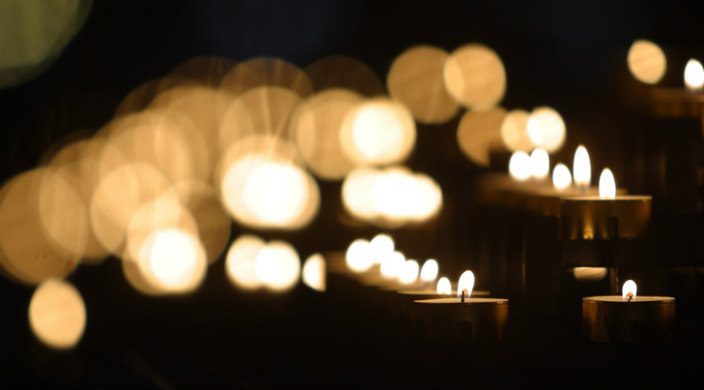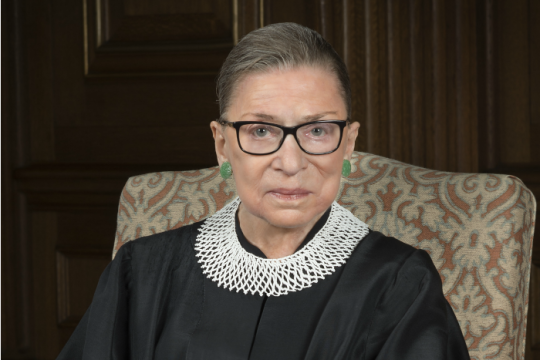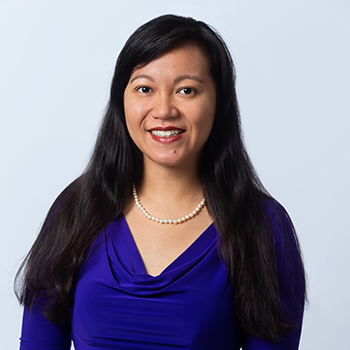
Tishah B'Av is a day of mourning, commemorating the destruction of the first and second Temples. In recent years, it's also a day to mourn other tragedies that have darkened Jewish history - the Romans putting down the Bar Kochba revolt, mass murders of Jewish communities during the Crusades, expulsions from England, France, and Spain in the Middle Ages, and the Holocaust.
But Tishah B'Av makes me uncomfortable. For me, reading the Book of Lamentations is a deeply disturbing experience. My emotions are stretched back and forth between what I would call extreme han (the Korean word for "deep sorrow, resentment, grief, regret and anger") and God's righteous punishment of the Children of Israel for our transgressions. That latter aspect - that all these tragedies are the punishment of a vengeful, moralizing God - is unacceptable to me. What kind of God would destine a child to be born with significant health problems, killed in a mass shooting at school, or die in a car accident? What kind of God would intentionally design Auschwitz? What kind of God would pre-ordain what happened to the Rohingya in 2017 and 2018?
My mom bought Tough Questions Jews Ask by Rabbi Edward Feinstein for my brother and me one Hanukkah, shortly before I became bat mitzvah. In reconciling the existence of God with heinous tragedies like the Holocaust, the author explained that human agency - even if that agency is to do evil - takes precedence: "Remember the Talmud's teaching. God doesn't stop nature from following its own rules. Human beings have a nature. The most important part of human nature is our ability to make choices. We can choose to be good or evil, to do good or evil. We can choose to be loving or hateful, to build or destroy. And just as God doesn't interfere when nature follows its own rules, God doesn't stop human beings from making their own choices. Even when they choose the worst of evil."
By our nature, human beings tend to take things for granted, especially the things we're given too easily. The state of the world is our responsibility, not God's. Each of us has to make a conscious choice to first care and then act to improve our world. By taking ownership of and responsibility for the world and the state we find it in today, that is how we can truly value the gift of the world and work to ensure the progress we make lasts.
In a world filled with seemingly endless, human-driven cruelty, apathy, and suffering, it takes far more emotional energy and resilience to care. It would be easier to detach from the world and modify our expectations so as to expect very little or nothing, to minimize our own pain. But our choices define us, and I know for me, my choice to care about the world defines me as a Jew, as a Korean, as an American, and as a human being. It's why I wanted to be an LA at the RAC. The more I learn about the terrible and terribly important issues of our day, I'm reminded of Martin Buber's explanation for the existence of atheists in Tales of Hasidim, Vol. 2: when someone is in need of help, act as if there was no God.
August 25, 2022, marks the fifth anniversary of the Rohingya genocide, when the Burmese military commits heinous acts of murder and violence against the Rohingya people, driving them into Bangladesh. In the face of heinous, unspeakable acts like genocide - and the fact that genocide continues to happen despite global efforts and the rallying cry "Never again" - no response seems adequate. A hate-filled monster with a gun seems more powerful than an advocate with a pen and paper. But the choice is there: to find within yourself the courage to care and do something even when it may seem pointless to do so. The journey of a thousand miles starts with a single step. Most of us in our lifetime will not run into a burning building and rescue ten orphans, but every single one of us has the power to take smaller, incremental actions - write a letter to Congress, vote in all elections we're eligible to vote in and get others to vote as well, learn and educate others about an important advocacy issue - that can add up to significant, enormous change in government, society, and the world. Evil does not grow and blossom overnight, but neither does goodness. Genocide doesn't begin with gas chambers, machetes, or machine guns. It begins with people making a choice to hate others, and then acting on their hatred.
The Tough Questions Jews Ask book is still on the coffee table in our living room at home. One of my favorite stories about advocacy is from that book:
A man who goes up to heaven at the end of his life. He stands before the throne of God. The man looks up at God and says, "You know, I'm very angry at You! Can't You see that the world You created is filled with suffering and ugliness and destruction? Why don't You do something to fix the world's mess?"
God looks down at the man, and in a gentle voice says, "I did do something. I sent you."
Read and sign the Jewish Rohingya Justice Network's letter to U.S. Secretary of State Antony Blinken.
Tell the Senate to pass the BURMA Act of 2021.
Read further about observing Tishah B'Av.
Related Posts


